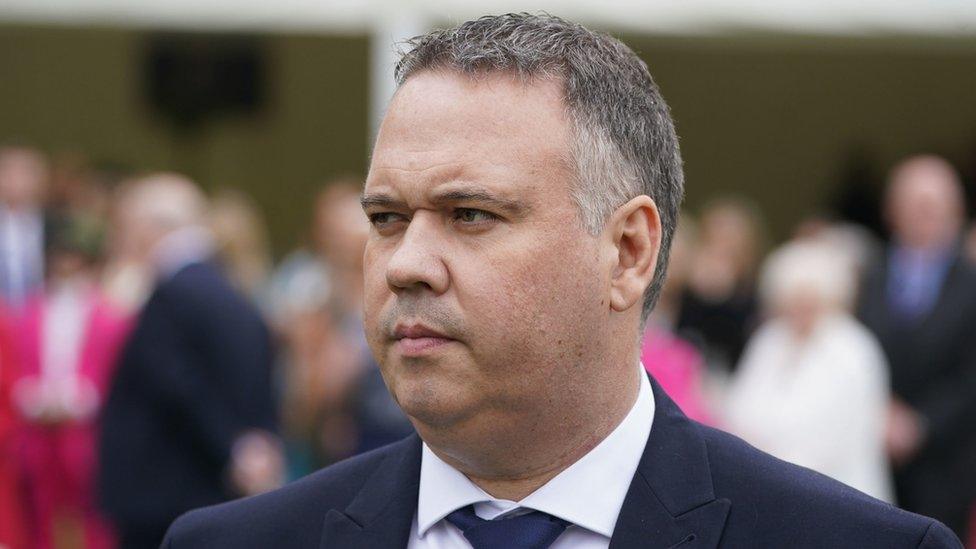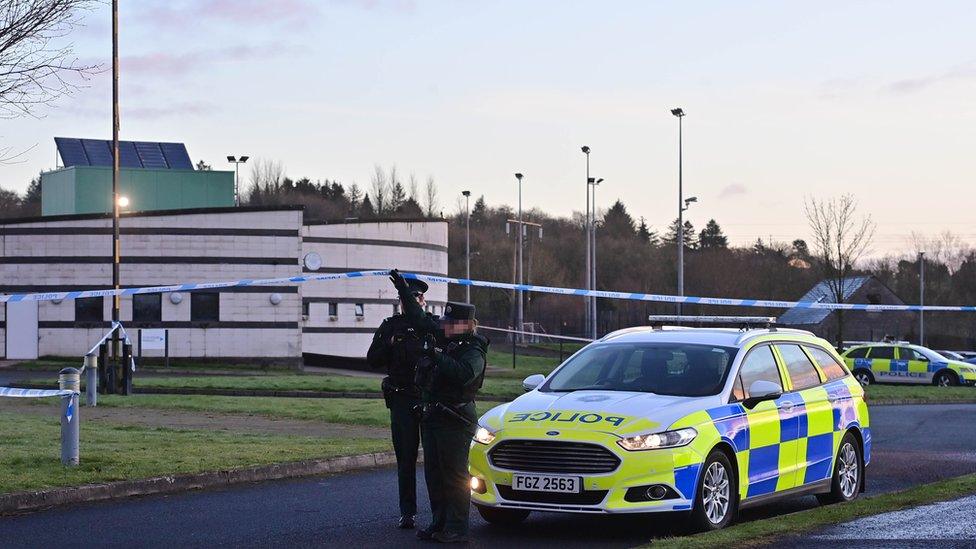John Caldwell: Man accused of helping gunmen is released on bail
- Published

Det Ch Insp John Caldwell survived being shot several times on the night of 22 February
A man accused of helping the gunmen who tried to kill senior police officer John Caldwell in February has been granted bail by a High Court judge.
Det Ch Insp Caldwell was shot several times in Omagh, County Tyrone, as he finished coaching young footballers.
Tony Slevin allegedly drove a suspect to Belfast, after the suspect delivered a car linked to the attack.
The 47 year old, from Derryloughan Avenue in Coalisland, denies a charge of preparation of terrorist acts.
The prosecution team opposed Mr Slevin's bail application, arguing that his alleged role showed him to be a trusted associate of the gunmen who carried out the attempted murder.
However, a defence barrister described the case against his client as "hopeless".
Det Ch Insp Caldwell was shot repeatedly in front of his young son as he loaded footballs into the boot of his car on the night of 22 February.
Detectives believe three cars were used to plan the gun attack on the off-duty Police Service of Northern Ireland (PSNI) officer at the Youth Sport Omagh complex.

Det Ch Insp Caldwell was off duty and had just finished coaching a youth football training session when he was shot
Two of of the vehicles were Ford Fiestas.
One was used by the gunmen as a getaway car and was discovered on fire after the shooting.
But the Police Service of Northern Ireland believes the other Ford Fiesta was transported from Belfast to Omagh for an unspecified role in the build up to the shooting.
A co-accused allegedly drove the second Fiesta on the first stage of the journey from Belfast to Tamnamore Roundabout, near Coalisland.
Based on CCTV and telephone evidence, police claim Mr Slevin picked up the driver at that location and took him back to Belfast.
Seven men have been charged with attempting to murder Mr Caldwell.
Granting bail, the judge acknowledged there were issues which may distinguish Mr Slevin from others charged in connection with the attack.
He cited the defendant's clear record, employment in laying fibre optic cables and the length of time before such a complex case will reach trial.
Mr Slevin was bailed on sureties of £20,000, and was ordered to surrender any passports and abide by a curfew.
He was also banned from entering Omagh and must report to police five times a week.